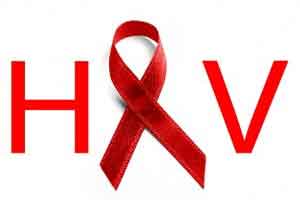- Home
- Editorial
- News
- Practice Guidelines
- Anesthesiology Guidelines
- Cancer Guidelines
- Cardiac Sciences Guidelines
- Critical Care Guidelines
- Dentistry Guidelines
- Dermatology Guidelines
- Diabetes and Endo Guidelines
- Diagnostics Guidelines
- ENT Guidelines
- Featured Practice Guidelines
- Gastroenterology Guidelines
- Geriatrics Guidelines
- Medicine Guidelines
- Nephrology Guidelines
- Neurosciences Guidelines
- Obs and Gynae Guidelines
- Ophthalmology Guidelines
- Orthopaedics Guidelines
- Paediatrics Guidelines
- Psychiatry Guidelines
- Pulmonology Guidelines
- Radiology Guidelines
- Surgery Guidelines
- Urology Guidelines
Zinc deficiency may make inflammation worse in HIV patients

Washington : Deficiency of zinc can contribute to chronic inflammation among HIV-positive individuals, according to a new study.
This is the first investigation to explore the association between serum zinc levels and inflammation among people with human immunodeficiency virus (HIV) infection, while taking their anti-retroviral therapy (ART) into account.
Zinc functions as an anti-inflammatory agent, and zinc deficiency is a common micronutrient abnormality seen in people with HIV, researchers said.
They observed a significant relationship between serum zinc concentration and serum C-reactive protein (CRP) concentration in HIV-positive individuals - higher zinc concentrations were associated with lower CRP levels.
"CRP is a biomarker of inflammation that has been associated with several parameters of HIV disease progression and the focus of extensive epidemiologic investigation because it is also an independent survival predictor," said Krishna Poudel from University of Massachusetts Amherst in the US.
"The fact that several studies have suggested that zinc might be something important for us to be aware of led us to analyse this micronutrient in HIV-positive patients," said Poudel.
"We hypothesised that lower concentrations of serum zinc would be associated with increased CRP concentrations in HIV-positive individuals, taking into account of ART," he added.
For the study, researchers established a cohort of about 322 people living with HIV in Nepal. They conducted a cross-sectional survey among 311 HIV-positive participants, 177 men and 134 women, 18-60 years old.
They measured serum and zinc CRP concentrations by standard methods and used a questionnaire, in-person interviews, blood samples and Indian food tables to estimate dietary zinc intake and CRP levels.
Using linear regression statistical analyses and adjusting for demographic, lifestyle and HIV-clinical factors, researchers found average CRP concentration significantly decreased as serum zinc concentrations increased in men and women and in all age groups.
The findings may lead to intervention strategies to reduce inflammation and improve health and quality of life for those HIV-positive people, including those who take ART to control the disease, researchers said.
The study was published in the journal Biological Trace Element Research.

Disclaimer: This site is primarily intended for healthcare professionals. Any content/information on this website does not replace the advice of medical and/or health professionals and should not be construed as medical/diagnostic advice/endorsement or prescription. Use of this site is subject to our terms of use, privacy policy, advertisement policy. © 2020 Minerva Medical Treatment Pvt Ltd